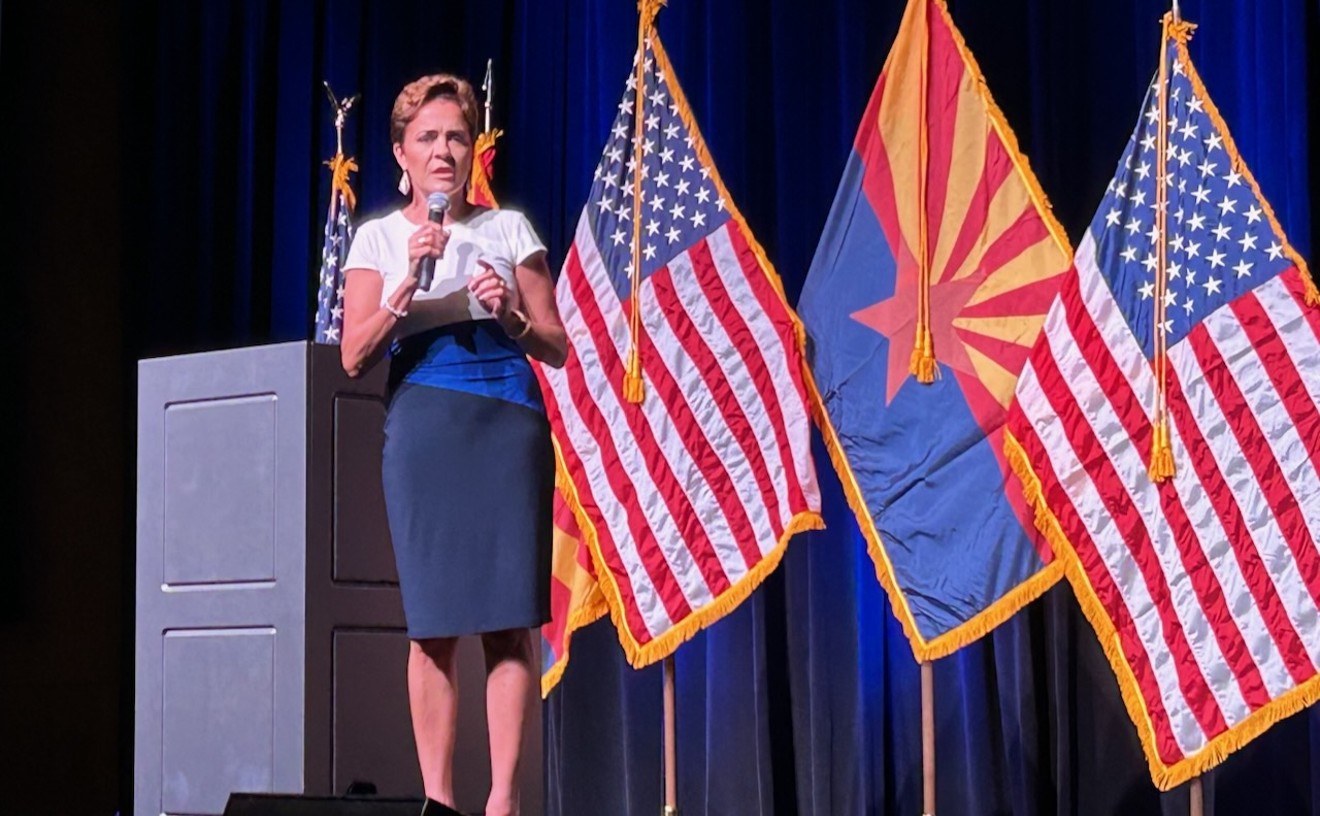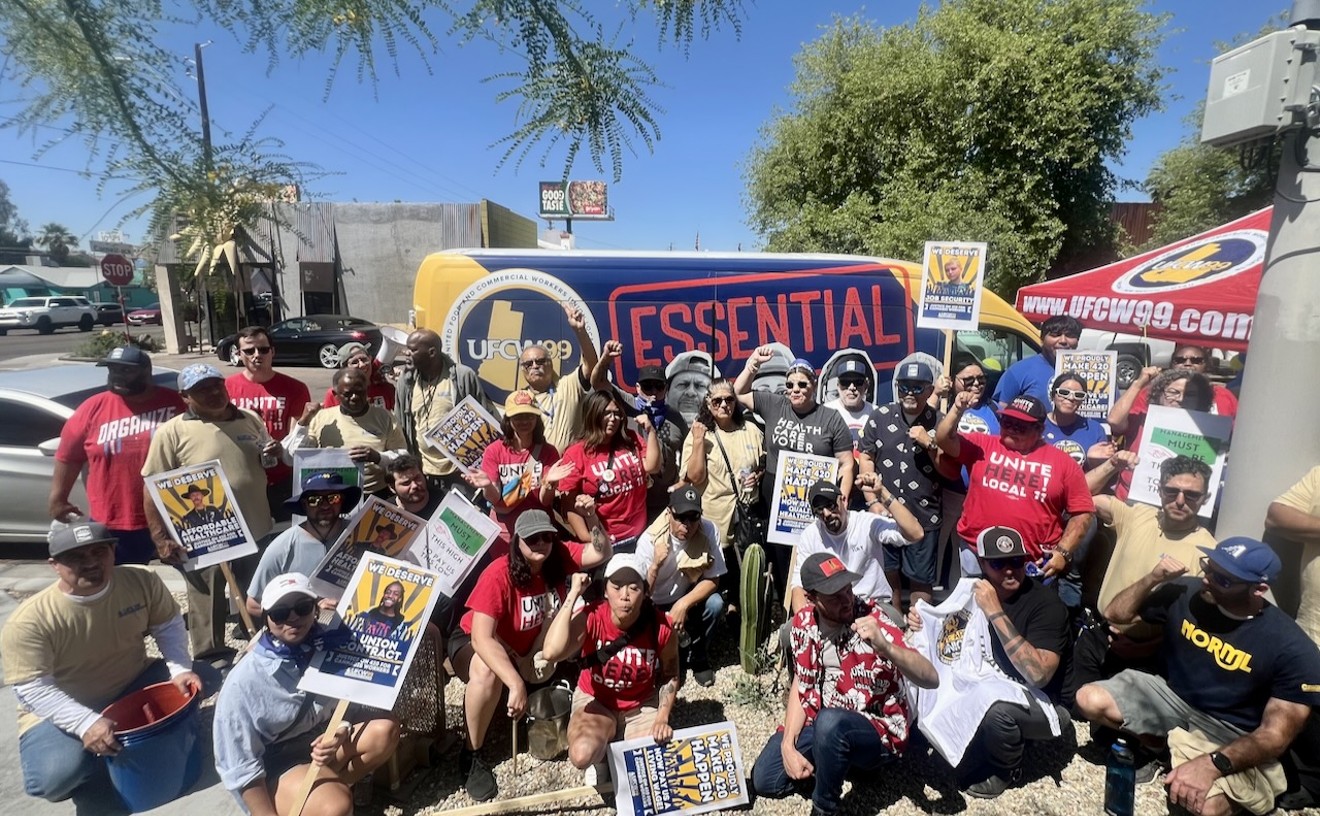When a certain football team from Washington, D.C., comes to play in Arizona, its name won't be displayed in lights — that is, if a bill recently introduced by a Navajo lawmaker is successful.
Under House Bill 2499, publicly funded stadiums such as the University of Phoenix Stadium would be banned from displaying any team names and logos that are disparaging to Native Americans. The bill leaves it up to federally recognized tribes that have a presence in Arizona to determine exactly what fits the definition of "disparaging."
They don't necessarily have to agree, either. Only one tribe would need to make a complaint in writing to the stadium's owner in order for the law to take effect.
Representative Eric Descheenie, who introduced the bill, said that it's intended to target what he categorized as "government speech," and therefore wouldn't violate anyone's First Amendment rights.
"Fans can continue to wear, display, and say what they want, regardless of HB 2499," he said.
Descheenie represents Legislative District 7, which covers the entirety of the Navajo Nation and the Hopi Nation as well as other parts of rural northern Arizona. He recently made national news after a group of Trump supporters confronted him at the state capitol and asked whether he was in the country illegally. (We'll pause for a second here to let that sink in.)
Although a handful of public schools in Arizona — including one in the Navajo Nation — still use Native American mascots or have team names that are widely agreed to be offensive, Descheenie said that his bill isn't intended to target them because they're not making a profit off the use of those mascots.
That being said, he added, "I implore St. John's and Red Mesa to do some introspection themselves and to seriously consider what it is that they're perpetuating. It's a culture of racism."
Representative Wenona Benally and Senator Jamescita Peshlakai, the only two other Native American lawmakers at the state Legislature, have signed on as co-sponsors of the bill, as has the rest of the House Democratic Caucus.
Also backing the proposed legislation are Jonathan Nez, the vice president of the Navajo Nation, and Amanda Blackhorse, a Navajo activist who sued Washington's team to get its trademarks revoked. (The Supreme Court later ruled that trademarks can't be denied just because a name is derogatory.)
"We know that Native mascots hurt Native people," Blackhorse said, citing numerous studies that have shown a link between stereotypical mascots and low self-esteem. "This is not just my opinion, this is a fact."
She added while she was happy to hear that the Cleveland Indians will discontinue their use of the Chief Wahoo mascot, the team's name is also problematic.
"If you dehumanize and erase people long enough, will society care about their health and well-being?" she asked.
Descheenie pointed out that Native Americans in Arizona struggle with higher-than-average rates of alcoholism, suicide, and heart disease.
Yet when he tries to advocate for solutions at the legislature, he said, "We're an afterthought or we're not a thought at all. And I would attribute it to the fact that we continuously get corporations marketing that we're not even human."
[
{
"name": "Air - MediumRectangle - Inline Content - Mobile Display Size",
"component": "18478561",
"insertPoint": "2",
"requiredCountToDisplay": "2"
},{
"name": "Editor Picks",
"component": "16759093",
"insertPoint": "4",
"requiredCountToDisplay": "1"
},{
"name": "Inline Links",
"component": "17980324",
"insertPoint": "8th",
"startingPoint": 8,
"requiredCountToDisplay": "7",
"maxInsertions": 25
},{
"name": "Air - MediumRectangle - Combo - Inline Content",
"component": "16759092",
"insertPoint": "8th",
"startingPoint": 8,
"requiredCountToDisplay": "7",
"maxInsertions": 25
},{
"name": "Inline Links",
"component": "17980324",
"insertPoint": "8th",
"startingPoint": 12,
"requiredCountToDisplay": "11",
"maxInsertions": 24
},{
"name": "Air - Leaderboard Tower - Combo - Inline Content",
"component": "16759094",
"insertPoint": "8th",
"startingPoint": 12,
"requiredCountToDisplay": "11",
"maxInsertions": 24
}
]












